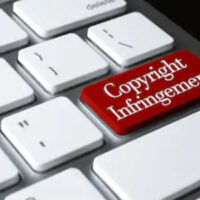What Damages Can You Seek in a Copyright Infringement Case in Florida?

Federal law gives you certain exclusive rights to create, distribute, reproduce, and sell your works. However, when your copyright rights are infringed, you may be entitled to money damages under the Copyright Act of 1976.
A West Palm Beach copyright litigation attorney can help sue the person who used your work without permission. If the copyright infringement lawsuit is successful, you may be awarded monetary compensation.
But how do Florida courts determine your monetary damages resulting from a third party’s infringement of your work? Typically, courts use three legal theories when awarding financial compensation in copyright litigation cases:
- Actual damages
- Profits
- Statutory damages
However, just like any other commercial litigation case, a copyright infringement suit is both a time-consuming and costly process. You may want to have a lawyer to evaluate your potential recovery in your copyright infringement suit.
Your Actual Damages in a Copyright Infringement Case
Actual damages, also known as compensatory damages, constitute any provable monetary loss you suffered as a result of the infringer’s wrongdoing. Your actual damages may include:
- Lost sales
- Loss of licensing revenue
- Any other demonstrable financial loss directly caused by the infringement
Your financial losses must be attributable to the infringement. Otherwise, the court may refuse to take them into account when calculating your compensatory damages.
Infringer’s Profits in a Copyright Infringement Case
The second category of financial compensation in copyright litigation is the amount of money the infringing third party earned as a result of using your work. These damages can only be awarded if they are higher than the potential profits (actual damages) lost by the copyright owner.
When determining the infringer’s profits, the copyright owner must demonstrate proof of the infringing party’s gross revenue. The infringer, meanwhile, must show evidence that their earnings are attributed to factors other than the copyrighted work.
Typically, parties in a copyright infringement case use expert testimony to establish their actual damages and the infringer’s profits.
Statutory Damages in a Copyright Infringement Case
In many copyright infringement cases, proving actual damages or the infringer’s profits is somewhat tricky. How can you know how many works or products you would have sold or how much money you lost as a result of the infringer’s activity?
The Copyright Act also offers a third category of compensatory losses, known as statutory damages. Statutory losses refer to specific damages set by the law. This category of damages is available only to those who have registered their work with the U.S. Copyright Office before the infringing activity.
However, the Act prohibits the copyright owner from receiving both statutory and actual damages (plus the infringer’s profits). That is why the plaintiff must have a lawyer evaluate which category of damages could potentially bring greater payout.
Under 17 U.S.C. § 504(c), the copyright owner can receive from $750 to $30,000 per infringement in cases where the infringing activity cannot clearly be proven as innocent or willful. The amount of recoverable compensation depends on the severity of the infringement as well as the infringer’s financial situation.
Contact our West Palm Beach copyright litigation lawyers at Pike & Lustig, LLP, to evaluate damages in your infringement case. Call at 561-291-8298 to get a case review.
Resource:
copyright.gov/title17/
